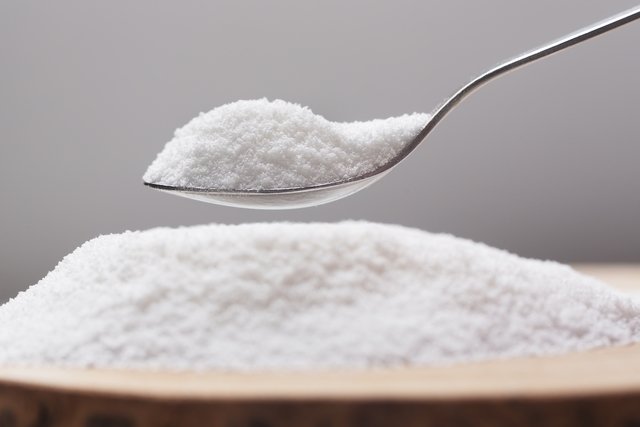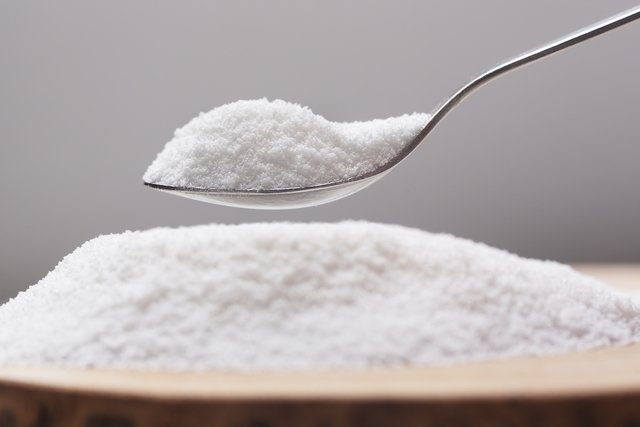Aspartame is an artificial sweetener that is up to 200 times sweeter than regular sugar and has only 4 calories in every 1 g. This sweetener is widely used by the industry to sweeten foods and beverages. dietsuch as gum, soft drinks, sauces, ice cream and cakes, for example.
Aspartame is also sold in drugstores, supermarkets and health food stores, and is mainly used by people with diabetes to sweeten teas, juices and coffees, replacing sugar. This sweetener is also used by those who want to lose weight, as it provides a sweet taste and contains few calories.
However, according to the World Health Organization, consuming aspartame for long periods does not promote weight loss and could increase the risk of type 2 diabetes, cardiovascular disease and cancer.

Is aspartame bad?
When consumed within the recommended amount, aspartame is considered safe and can be used to help control blood glucose levels in people who already have diabetes.
However, according to the World Health Organization, long-term consumption of aspartame does not promote weight loss and could increase the risk of type 2 diabetes, cardiovascular disease and cancer.
It is important to remember that current scientific studies evaluated by the WHO, FDA, European Food Safety Authority (EFSA) and the United States National Cancer Institute (NCI) are still inconclusive about the relationship between aspartame and cancer in humans. .
Recommended quantity
The maximum amount of aspartame that can be ingested by an adult is 40 mg/kg of body weight per day. For a person weighing 50 kg, this amount is equivalent to 2 grams, that is, 2 and a half sachets of the sweetener per day, for example.
In children and pregnant women, the maximum daily consumption of aspartame should be 5 mg/kg of body weight.
The National Cancer Institute (INCA), in Brazil, recommends that the consumption of any type of artificial sweetener be avoided.
Possible side effects
Because it contains phenylalanine, consumption of aspartame can cause convulsions, agitation, nausea, vomiting or skin sores in people with phenylketonuria, a genetic disease where ingestion of phenylalanine is toxic. Understand better what phenylketonuria is.
Where to find aspartame
Aspartame is found in liquid or powder sweeteners, which can be added to drinks and foods, such as teas, cakes, coffees, breads and juices.
In addition, aspartame is also used by the industry to sweeten products such as dietsuch as chewing gum, soft drinks, ice cream, juices, yogurts, cookies, gelatins and ready-made teas.
To avoid excessive consumption of aspartame, you can choose to consume food products that do not contain this sweetener. Another option is to avoid using it in food preparation or use natural sweeteners, such as stevia, which is also low in calories. Learn more about stevia.
Bibliography
- NATIONAL CANCER INSTITUTE. INCA’s position on aspartame. Available at: <https://www.inca.gov.br/publicacoes/notas-tecnicas/posimentação-do-inca-acerca-do-aspartame>. Accessed on 17 Jul 2023
- WHO. Aspartame hazard and risk assessment results released. Disponível em: <https://www.who.int/news/item/14-07-2023-aspartame-hazard-and-risk-assessment-results-released>. Acesso em 17 jul 2023
- WORLD HEALTH ORGANIZATION. WHO advises not to use non-sugar sweeteners for weight control in newly released guideline. Disponível em: <https://www.who.int/news/item/15-05-2023-who-advises-not-to-use-non-sugar-sweeteners-for-weight-control-in-newly-released-guideline>. Acesso em 07 jul 2023
- AMERICAN CANCER SOCIETY. Aspartame and Cancer Risk. Disponível em: <https://www.cancer.org/cancer/risk-prevention/chemicals/aspartame.html>. Acesso em 07 jul 2023
- EUROPEAN FOOD SAFETY AUTHORITY. Aspartame. Available at: <https://www.efsa.europa.eu/en/topics/topic/aspartame>. Accessed on 7 Jul 2023
- UNITED STATES FOOD AND DRUG ADMINISTRATION. Aspartame and Other Sweeteners in Food. Disponível em: <https://www.fda.gov/food/food-additives-petitions/aspartame-and-other-sweeteners-food>. Acesso em 07 jul 2023
- NATIONAL CANCER INSTITUTE. Artificial Sweeteners and Cancer. Disponível em: <https://www.cancer.gov/about-cancer/causes-prevention/risk/diet/artificial-sweeteners-fact-sheet#do-artificial-sweeteners-contribute-toplay-a-role-in-obesity>. Acesso em 07 jul 2023
- AHMAD, Y, Samar et al. Effect of sucralose and aspartame on glucose metabolism and gut hormones. Nutrition Reviews. Vol.28. 9.ed; 725-746, 2020

Sign up for our newsletter and stay up to date with exclusive news
that can transform your routine!
Warning: Undefined array key "title" in /home/storelat/public_html/wp-content/plugins/link-whisper-premium/templates/frontend/related-posts.php on line 12
Warning: Undefined array key "title_tag" in /home/storelat/public_html/wp-content/plugins/link-whisper-premium/templates/frontend/related-posts.php on line 13





